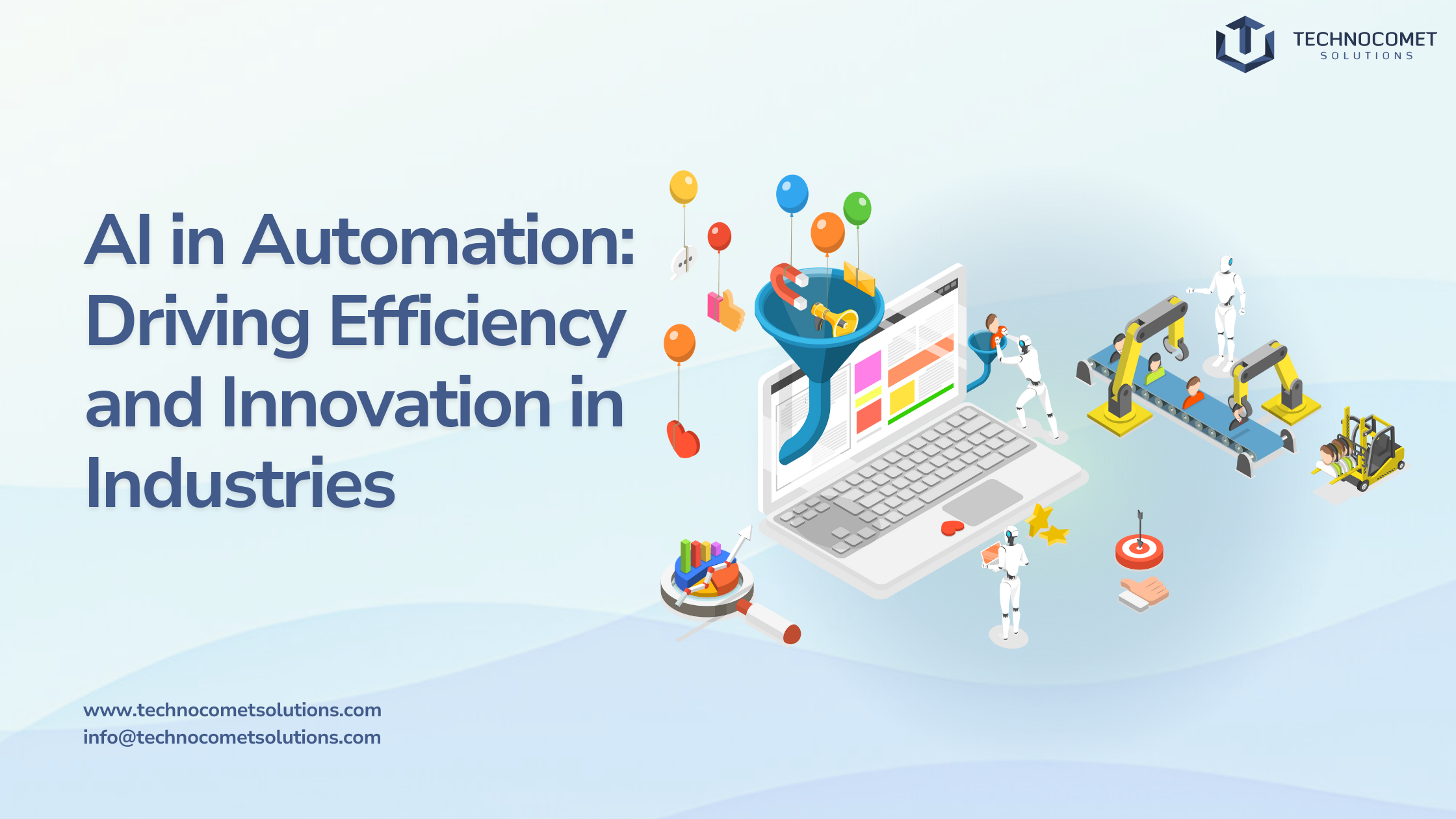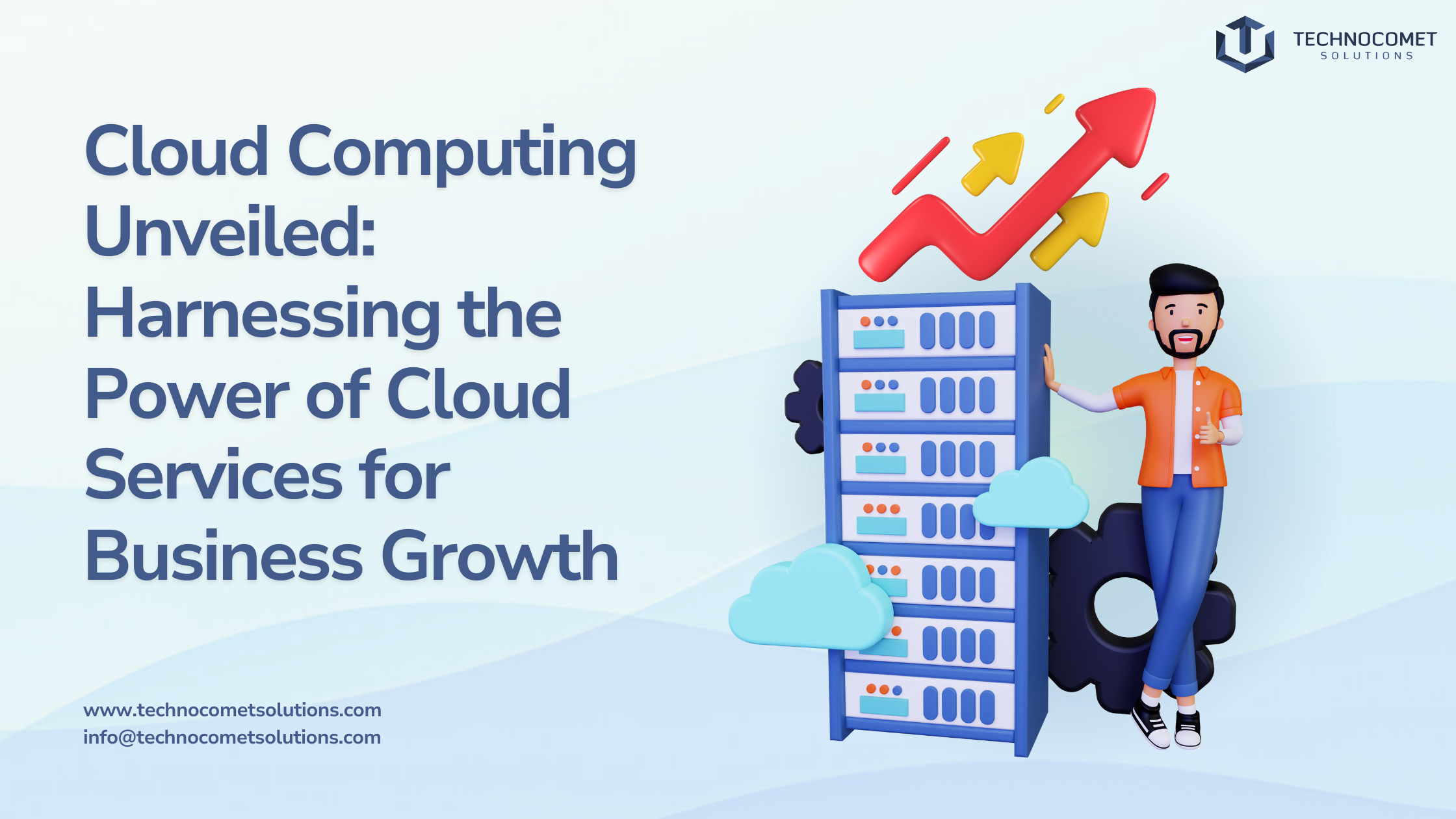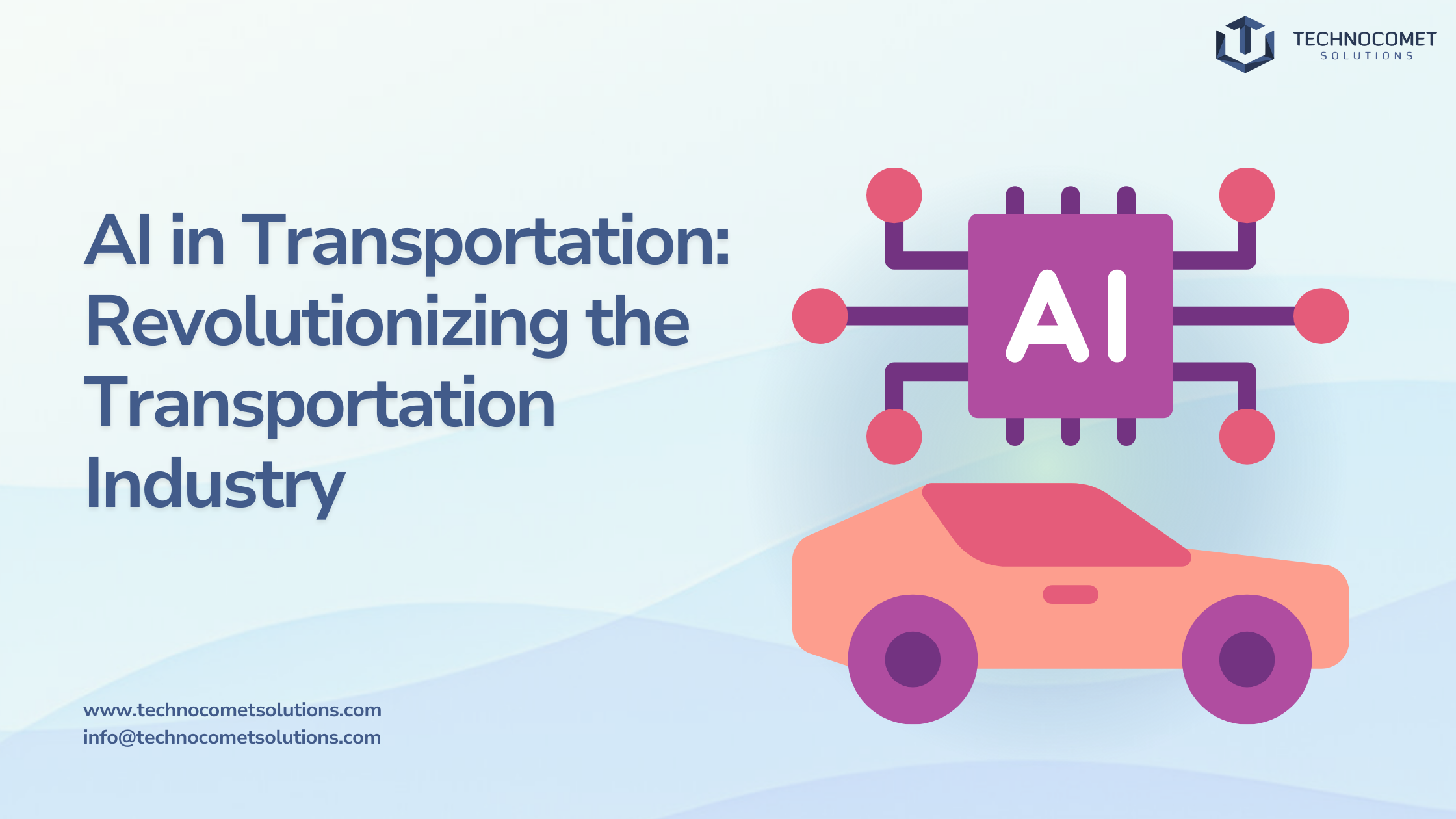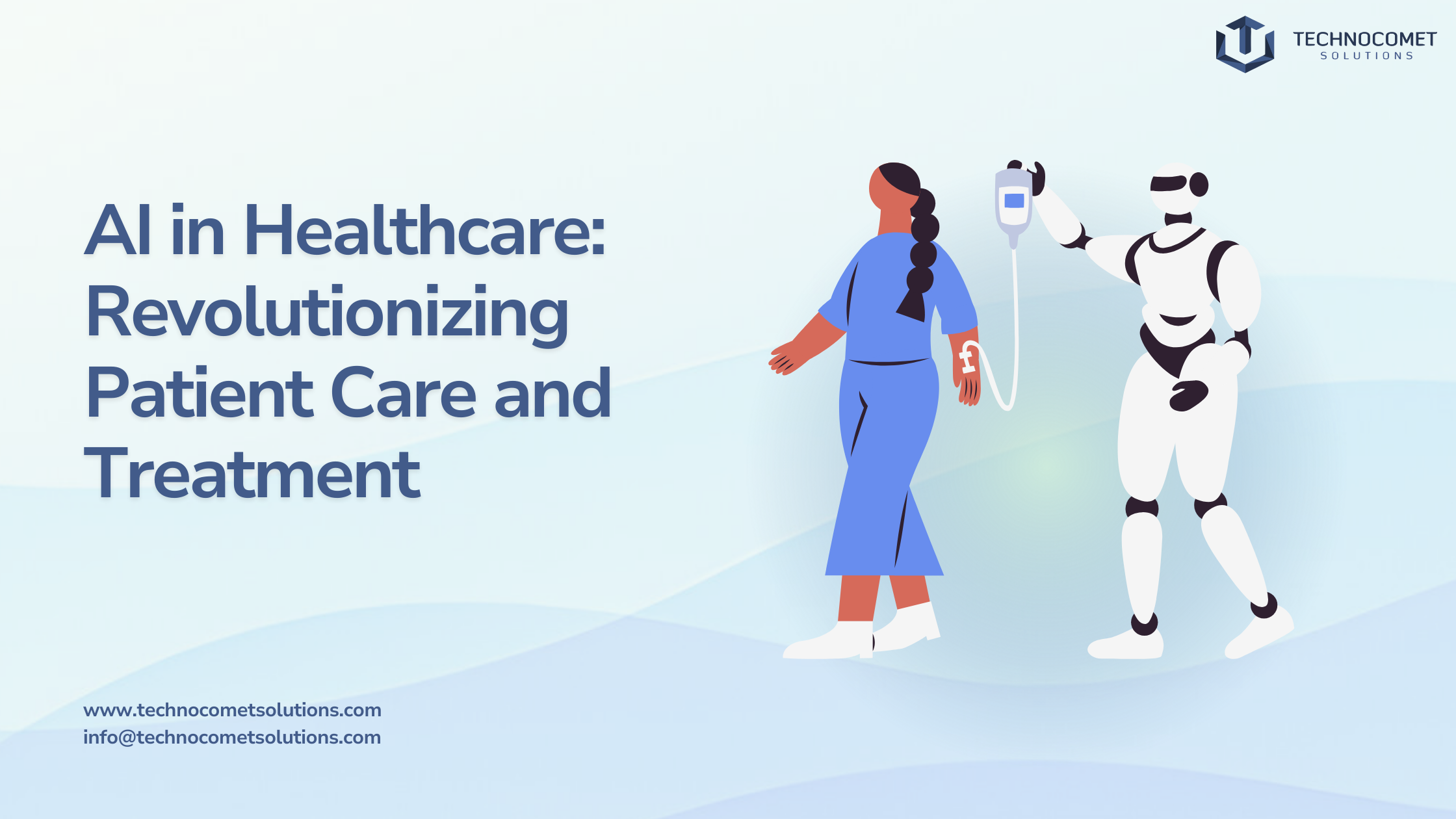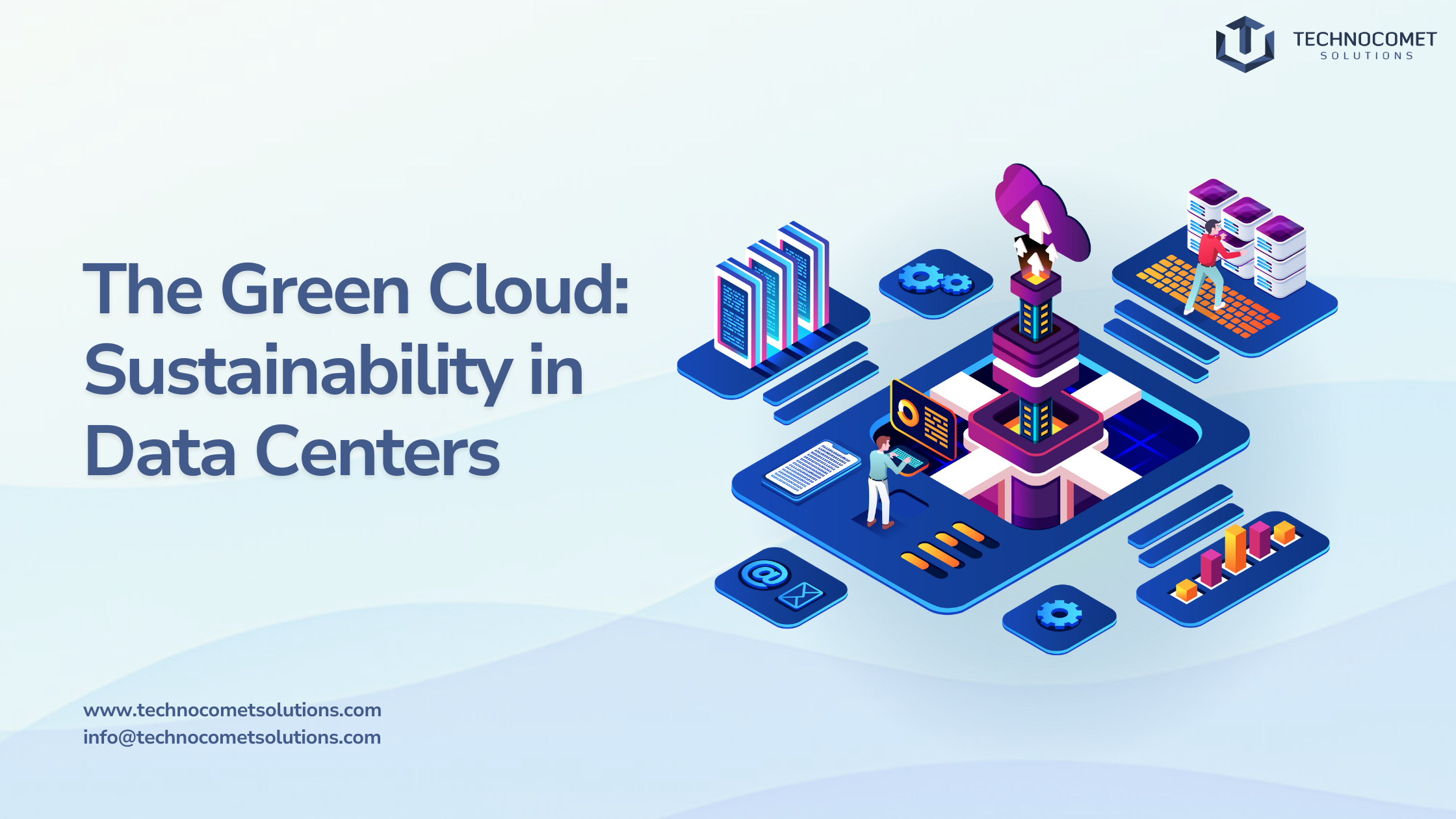Introduction
Artificial Intelligence (AI) is reshaping the landscape of modern industries, ushering in a new era of efficiency and innovation. As businesses strive to enhance productivity and streamline operations, AI in automation has emerged as a pivotal force across various sectors. This blog explores how AI is transforming industries such as manufacturing, healthcare, finance, and retail, while also addressing the challenges and future trends in AI-driven automation.
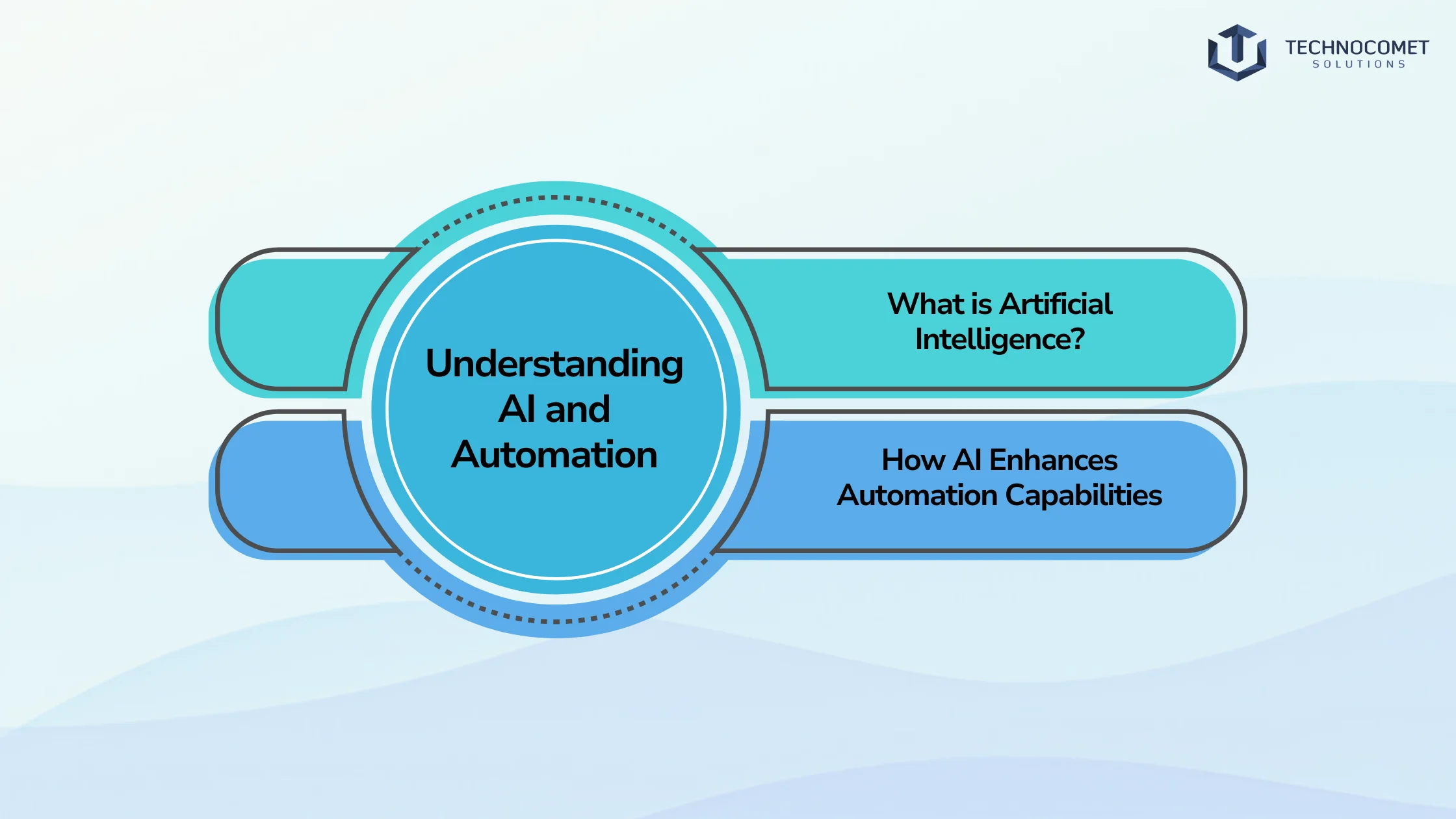
Understanding AI and Automation
What is Artificial Intelligence?
Artificial Intelligence refers to the capability of machines to perform tasks that typically require human intelligence. This includes reasoning, learning from experience, and understanding complex data. AI technologies, such as machine learning and natural language processing, enable systems to analyze vast amounts of information and make informed decisions, significantly enhancing automation capabilities.
How AI Enhances Automation Capabilities
AI in automation allows for the optimization of processes and workflows. By integrating AI into automation systems, businesses can achieve higher levels of efficiency, reduce operational costs, and improve decision-making. For instance, AI algorithms can predict equipment failures in manufacturing, allowing for timely maintenance and minimizing downtime.
AI-Powered Automation in Manufacturing
Streamlining Production Lines with Intelligent Machines
In manufacturing, AI is revolutionizing production lines. Intelligent machines equipped with AI technologies can analyze real-time data to optimize manufacturing processes. This leads to improved product quality and reduced waste, as machines can adjust their operations based on current conditions.
Predictive Maintenance: Reducing Downtime with AI
One of the most significant benefits of AI in automation is predictive maintenance. By analyzing data from machinery, AI systems can predict when a machine is likely to fail, allowing companies to perform maintenance before a breakdown occurs. This proactive approach not only saves costs associated with unexpected downtimes but also extends the lifespan of equipment.
Transforming the Healthcare Industry with AI
Automating Diagnostic Processes for Faster Results
AI is making waves in healthcare by automating diagnostic processes. AI algorithms can analyze medical images and patient data to assist healthcare professionals in diagnosing conditions more accurately and swiftly. This not only improves patient outcomes but also reduces the burden on healthcare systems.
Enhancing Patient Care through AI-Driven Insights
AI in automation is also enhancing patient care. By utilizing AI-driven insights, healthcare providers can offer personalized treatment plans based on individual patient data. This tailored approach leads to better health outcomes and increased patient satisfaction.
AI in Financial Services: Revolutionizing Transactions and Security
Automating Financial Transactions and Processes
The financial sector has embraced AI to automate transactions and streamline processes. AI systems can handle routine tasks such as processing payments and managing accounts, allowing financial institutions to focus on more complex activities. This automation enhances efficiency and reduces the likelihood of human error.
AI for Fraud Detection and Risk Management
AI’s ability to analyze large datasets makes it an invaluable tool for fraud detection. By identifying unusual patterns in transaction data, AI systems can flag potential fraudulent activities in real time, significantly improving security in financial services.
Retail and E-Commerce: Personalization and Efficiency Through AI
AI-Driven Inventory Management and Supply Chain Optimization
In retail, AI is optimizing inventory management and supply chain processes. AI systems can predict customer demand, allowing retailers to stock the right amount of products at the right time. This reduces excess inventory and improves cash flow.
Enhancing Customer Experience with Personalized Recommendations
AI in automation also enhances customer experiences through personalized recommendations. By analyzing customer behavior and preferences, AI systems can suggest products that are more likely to appeal to individual shoppers, increasing sales and customer loyalty.
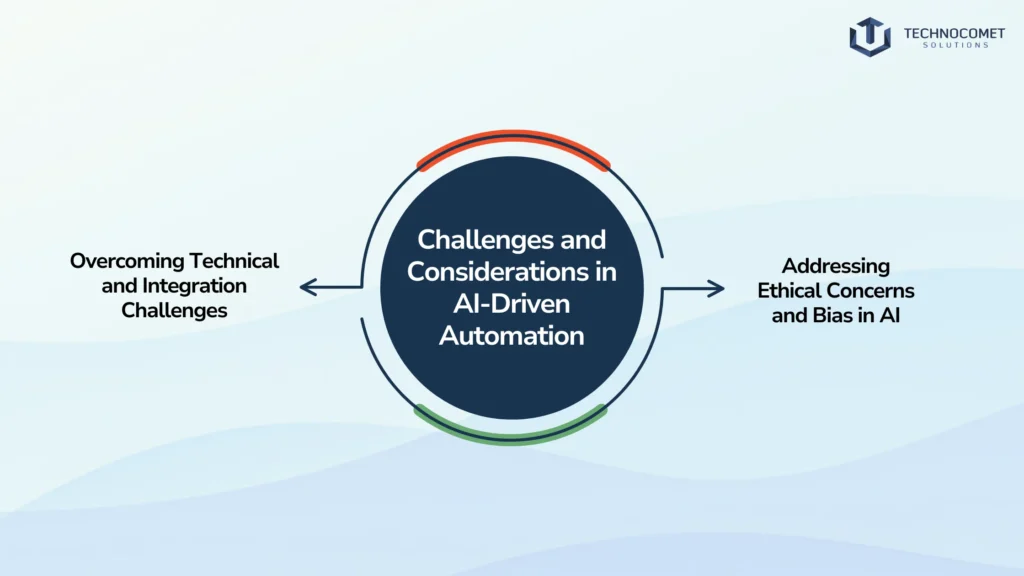
Challenges and Considerations in AI-Driven Automation
Addressing Ethical Concerns and Bias in AI
While the benefits of AI in automation are substantial, there are challenges to consider. Ethical concerns, such as data privacy and algorithmic bias, must be addressed to ensure that AI systems operate fairly and transparently. Organizations must implement robust governance frameworks to mitigate these risks.
Overcoming Technical and Integration Challenges
Integrating AI into existing systems can be technically challenging. Businesses need to invest in infrastructure and training to ensure that employees can effectively work alongside AI technologies. Overcoming these hurdles is crucial for maximizing the potential of artificial intelligence in automation.
The Road Ahead: Future Trends in AI and Automation
Emerging Technologies on the Horizon
The future of AI in automation looks promising, with emerging technologies such as quantum computing and advanced robotics set to further enhance capabilities. These innovations will enable even more sophisticated AI applications, driving efficiency across industries.
Predictions for AI’s Role in Shaping the Future of Automation
Experts predict that AI will play a central role in shaping the future of automation. As AI technologies continue to evolve, businesses will increasingly rely on AI to drive innovation, improve operational efficiency, and enhance customer experiences.
Conclusion
AI in automation is not just a trend; it is a transformative force that is reshaping industries and redefining how businesses operate. From manufacturing to healthcare, finance, and retail, the integration of AI technologies is leading to unprecedented levels of efficiency and innovation. As organizations navigate the challenges and embrace the opportunities presented by AI, the potential for growth and improvement is limitless. The future of artificial intelligence in automation is bright, promising a new era of enhanced productivity and smarter decision-making.
For those looking to enhance their operations with cutting-edge technology, TechnoComet Solutions Company offers comprehensive IT services to meet your needs. Contact us today!
FAQs
AI in automation refers to the integration of artificial intelligence technologies into automated processes, enabling machines to perform tasks intelligently, make decisions, and analyze data to enhance efficiency and productivity.
AI improves business efficiency by automating repetitive tasks, allowing employees to focus on more strategic work.
Various industries benefit from AI in automation, including manufacturing, healthcare, finance, and retail. Each sector utilizes AI to enhance processes, improve customer experiences, and drive innovation.
Challenges include addressing ethical concerns, ensuring data security, managing algorithmic bias, and overcoming technical integration issues.

